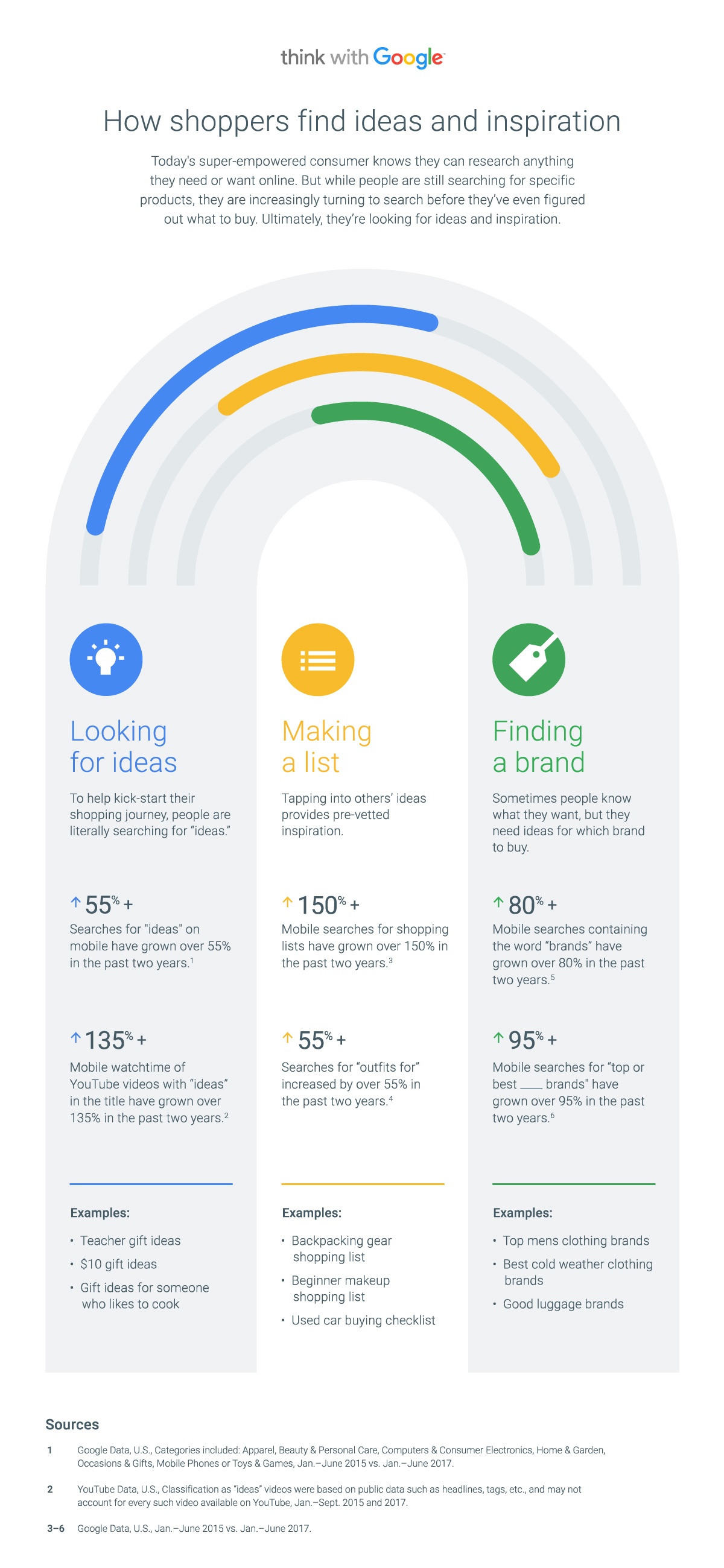![]()
What did you do the last time you had to buy something? Who did you turn to for ideas and inspiration? When was the last time you bought something without looking for opinions or reviews?
The answer to these questions leads us to the fundamental role that mobile technology plays in our daily decisions, from the most important ones to those that we would have once taken without thinking.
In the last two decades, our behaviors have changed so deeply that we hardly remember how life was before the spread of Internet-connected devices. Making decisions was a long, sometimes hard process. Customers were more thoughtful but also less reactive and aware.
Today, on the contrary, customers have all the information they need at their fingertips, readily available on the screen of the smartphone, wherever they are. More than 50% of customers use their smartphones to search for product info and decide what to buy and where to buy.
This simple fact has made them more aware and fast than ever, but also less reflective. The attention span is lower than ever (barely 8 seconds), and this behavioral changes have a huge impact on the way Brands plan and execute their marketing strategies.
According to recent research, 78% of customers searching on mobile for a local business ultimately end up making a purchase. Technology reshapes the 4Ps of traditional marketing, and the experience becomes the primary - if not the only - business differentiator.
The spread of the mobile devices, connected objects, and digital services constantly rewrites the structure of the customer journey. Today, the touchpoints we used to cross only a few years ago have lost relevance, and new ones have emerged - mainly online.
As mentioned by Google in a report about the Micro Moments, in this fast-paced and crowded ecosystem, where customers can buy whatever they want online at a lower price, you can be successful only when:
- You are there - You must show up where and when your customers are ready to choose you.
- You are quick - You do whatever it takes to connect with customers before your competitors.
- You are relevant - You can deliver meaningful contents, when and where it matters most.
“Today’s super-empowered consumers know they can research anything they need or want online. But while people are still searching for specific products, they are increasingly turning to search before they have even figured out what to buy. Ultimately, they are looking for ideas and inspiration.” (Think With Google)
When Google was founded in 1998, on average it was serving ten thousand search queries per day. Today, Google processes over 40 thousand search queries every second on average, which translates to over 3.5 billion searches per day and 1.2 trillion searches per year worldwide.
The disruption of search behaviors is caused by the evolution of technology but, in return, it can also become a vector of innovation. The perfect example is the algorithm of Google’s search engine, more and more ‘inspired’ by what happens on that (not so) tiny device in the hands of customers.
Mobile platforms now account for roughly the 60% of total time spent on digital media, and more than 60% of all traffic on Google search engine comes from mobile devices. These numbers are so relevant that Google has decided to split the engine into two - desktop and mobile - with the latter becoming the most important for your business purposes.
“By understanding how people are searching for ideas, brands have an opportunity to get into their consideration set. Brands can think of all the open-ended discovery moments where someone is totally open to what is out there and make themselves visible and differentiated.” (Google)
Going back to the opening questions, a good exemplification of what has changed in how shoppers find ideas and inspiration can be found in an infographic featured on Think With Google. A necessary starting point to understand how you can adapt and improve your strategy.

Download The 7 Pillars Of The New Customer Loyalty to define the foundations on which to build your engagement and loyalty strategy, create innovative experiences and establish a lasting and valuable relationship with your customers.



 Your magnifing glass to deeply understand your users and increase the value of each relatonship.
Your magnifing glass to deeply understand your users and increase the value of each relatonship. Listen to the voice of your customers deeply to understand what they truly want.
Listen to the voice of your customers deeply to understand what they truly want. The Lead Generation Platform to get leads from anonymous traffic on your website.
The Lead Generation Platform to get leads from anonymous traffic on your website.  Understand the behavior of people in physical spaces and monitor safety requirements.
Understand the behavior of people in physical spaces and monitor safety requirements. The Digital Commerce Platform designed to follow the most modern technological standards..
The Digital Commerce Platform designed to follow the most modern technological standards.. The XReality platform to tell brand and product stories by connecting physical and digital worlds.
The XReality platform to tell brand and product stories by connecting physical and digital worlds. Points, rewards, levels, badges, missions: a world of nudges to nurture your customer community.
Points, rewards, levels, badges, missions: a world of nudges to nurture your customer community. Discover all the other solutions!
Discover all the other solutions!









